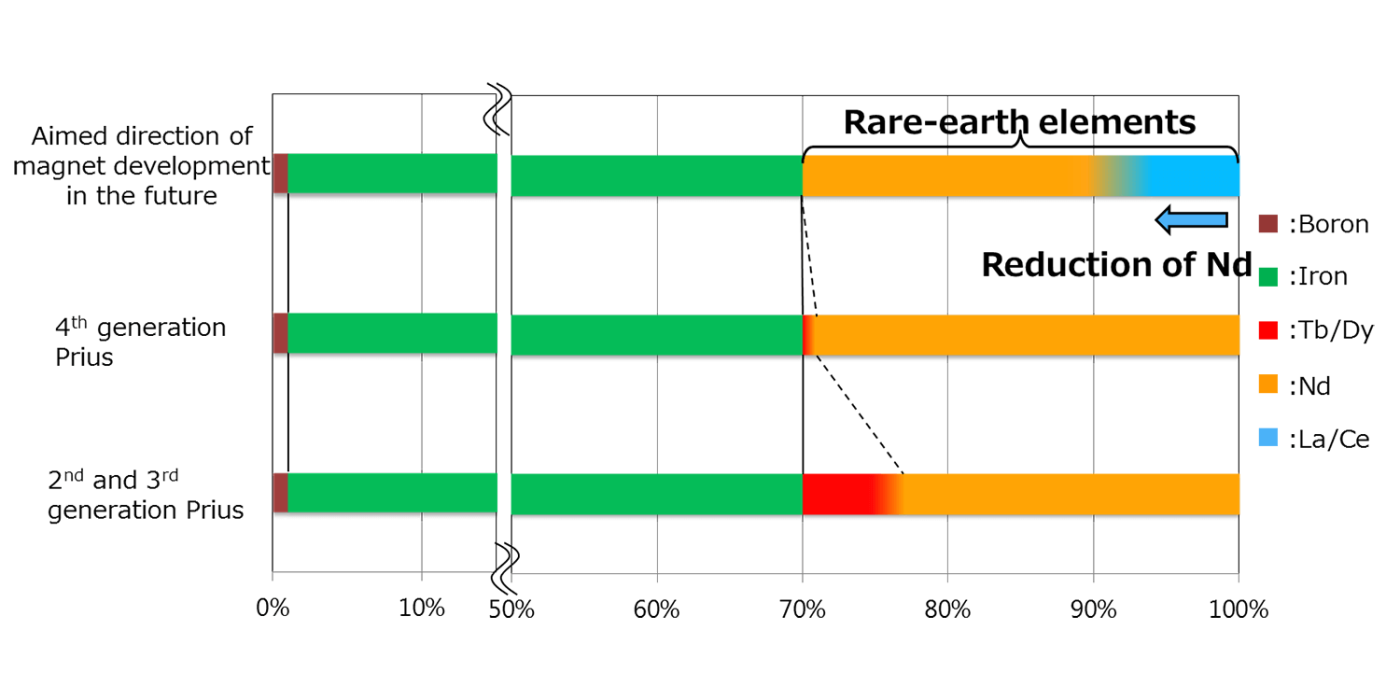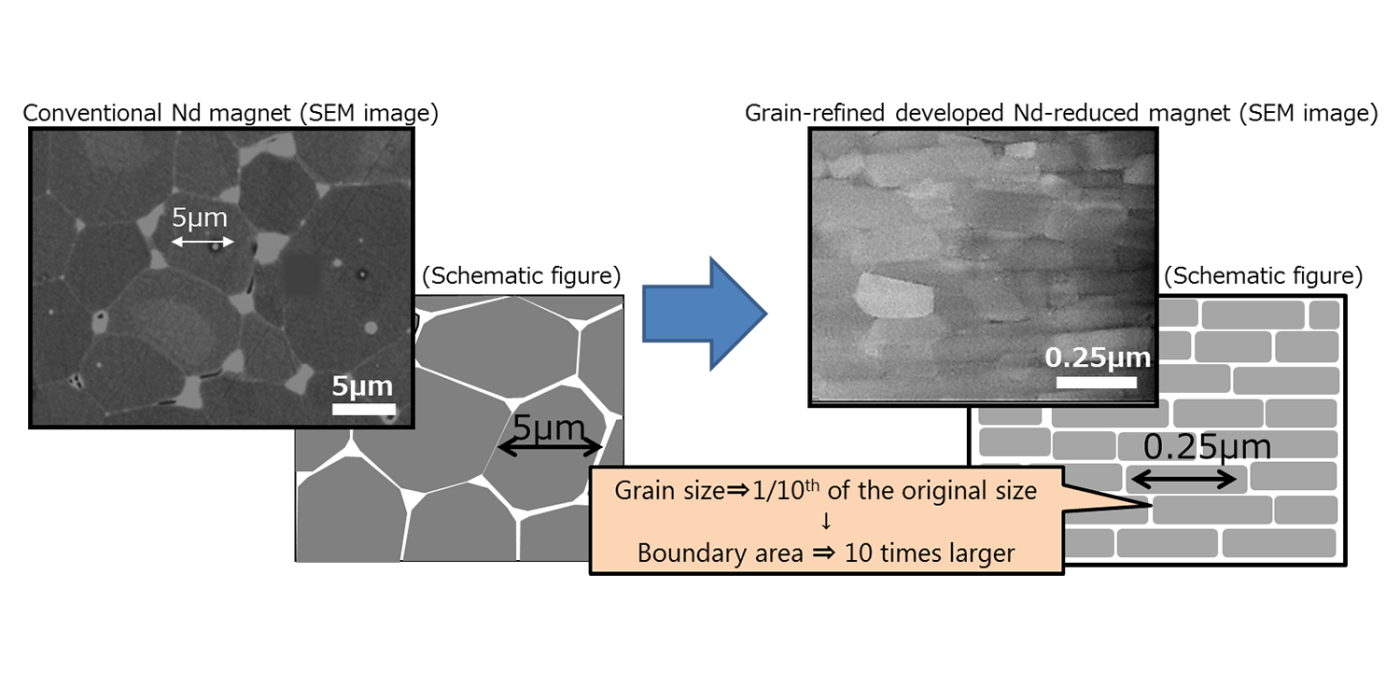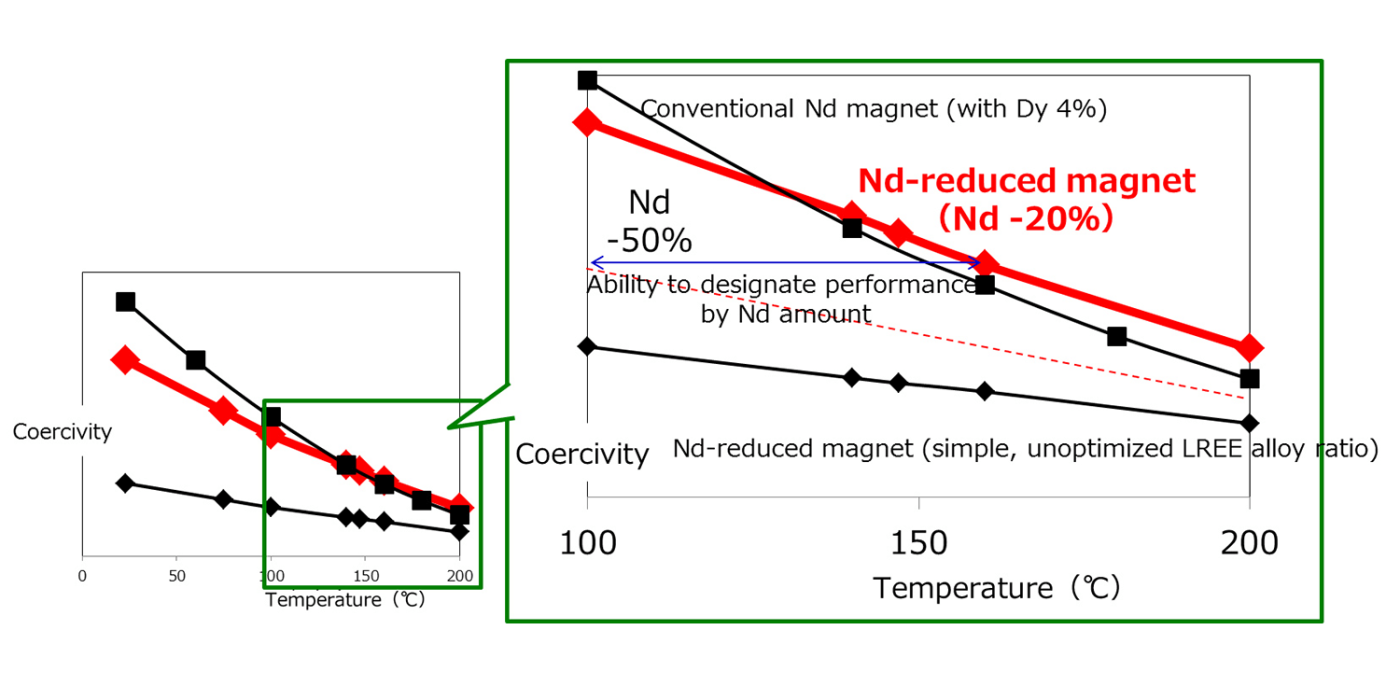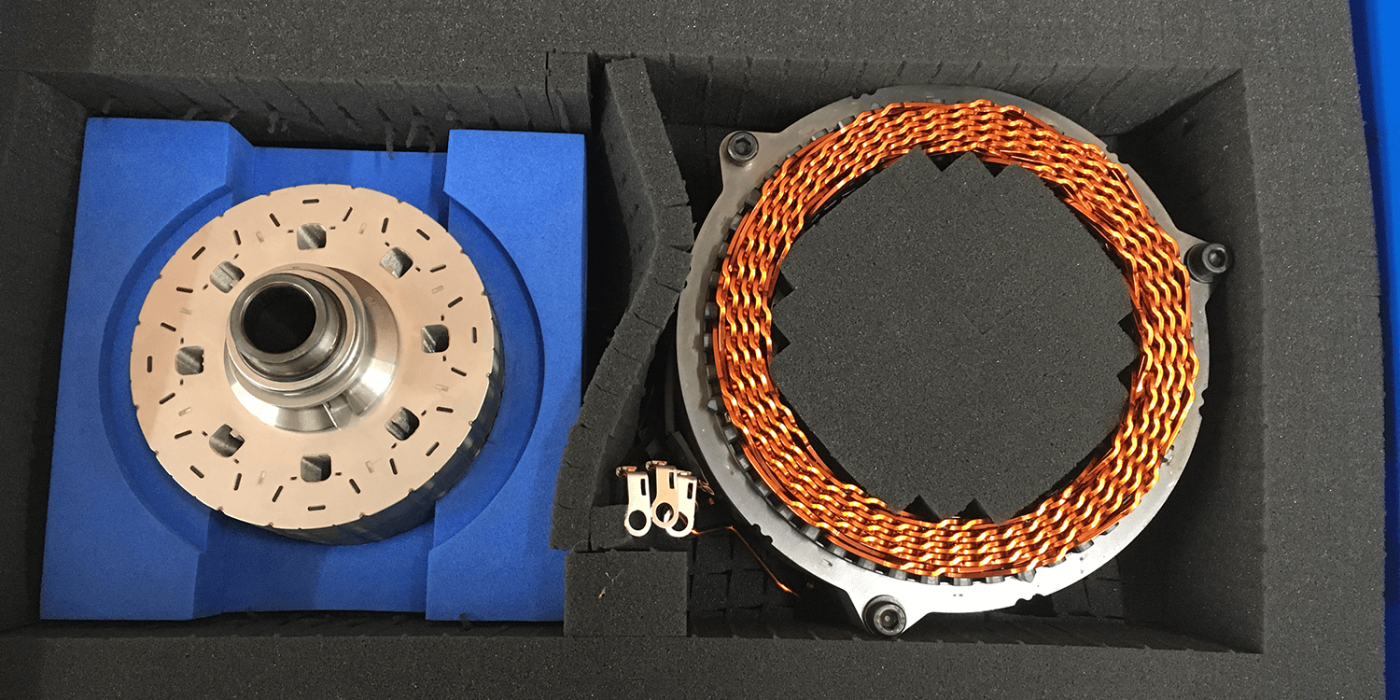Toyota’s new motor halves use of rare-earth metals
Toyota has developed a new magnet for electric motors, which will cut dependence on rare-earth metals by around 50 percent. It reduces the use of such rare earths as neodymium and replaces others with cheaper alternatives that cost up to 20 times less.
The magnet will help save a variety of rare-earth minerals to different degrees. The use of some such as neodymium, will be halved, while others, such as terbium and dysprosium get eliminated from the process entirely. Lanthanum and cerium will replace them instead.
The cost factor is significant. For example, dysprosium and terbium cost around 400 and 900 dollars per kg respectively, while neodymium factors in at about 100 dollars per kilo. Lanthanum and cerium have even lower cost, about 5 and 7 dollars per kilo respectively, that’s 20 times less.
Toyota will ask its suppliers to manufacture the new electric drives for them. By 2025, the Japanese see demand for neodymium exceeding supply by which time they also plan to have an electrified alternative to all of their vehicle models. Beginning by 2020, Toyota plans to launch ten all-electric cars.
Further aspirations at Toyota include the recycling of EV batteries (we reported).








0 Comments